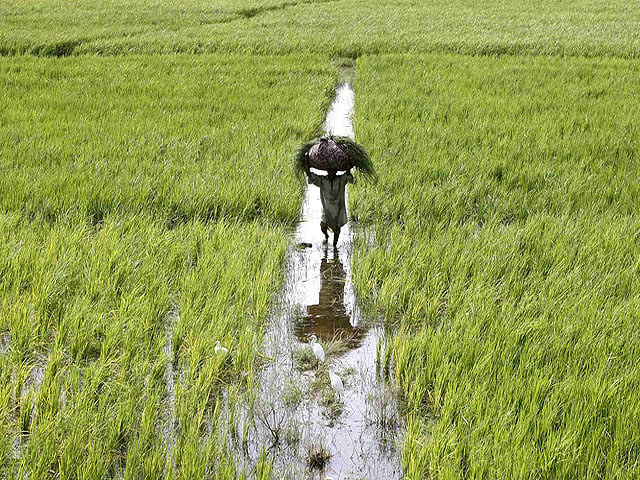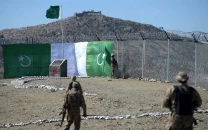National consultation: National agriculture policy needed to fight food insecurity
Speakers say malnutrition among women and children would affect productivity.

Speakers at a national consultation on Thursday stressed the need to form a national agriculture policy to counter the widespread food insecurity in the country.
They expressed concern over the skyrocketing increase in food prices since 2008, resulting in food insecurity and malnutrition among women and children. They highlighted that the increasing demand for food, fuel, fibre and feed, along with problems arising from climate change, pose serious challenges to food security in the country. They maintained that to respond to these challenges, the government needs to rethink its agriculture policy and its future direction beyond business as usual.
The consultation session was organised by DAMAAN Development Organisation with the collaboration of Sustainable Agriculture Action Group (SAAG) at a local hotel on Thursday.
Speaking on the occasion, Wasim Wagha of Aurat Foundation said that women and children are more vulnerable during such crises and the recent unprecedented price hike has affected them the most. “A malnourished mother cannot give birth to a healthy child; therefore, the health of both is at risk,” he said.
He said that women and children being malnourished also affect the country’s productivity, as both of them combined make the largest portion of our human resource, whether in agriculture production or other economic spheres.
He said that millions of children in Pakistan’s rural areas are malnourished and stressed for a revision of nutritional policy to ensure food security, especially among women and children. Wagha also stressed the need to promote kitchen-garden culture in urban areas.
DAMAAN Program Coordinator Shoaib Aziz called for greater investment in the agriculture sector in the aftermath of the floods. He said that climate change, land grabbing, bio-fuels and genetically modified crops are threatening food security in Pakistan. He supported the views of the International Fund for Food and Agriculture (IFAD) and International Assessment of Agriculture, Science and Technology for Development (IAASTD) that “small farmers are the only solution to ensure food security in the world”.
Sustainable Development Policy Institute (SDPI) Researcher Shakeel Ramay explained that food production, food availability and food accessibility are basic factors of food security. “If there is a problem in food production it affects other indicators as well. Therefore, all these indicators should be considered while formulating national food security policy,” he added.
He said that due to climate change and the resulting floods, crop production in Pakistan has diminished and driven food prices up. He expressed disappointment over the fact that that despite being an agrarian economy, Pakistan has not devised a national agriculture policy. He called for a new participatory agriculture policy in Pakistan.
Federal Seed Certification Department Director General Dr Boota Sarwar said, “Our crop production has been stagnant for the last 20 years, while the population keeps increasing.” He said that small farmers are not benefiting from increased food prices, since input costs have increased tremendously. He proposed that national price monitoring committees should be strengthened at the district, provincial and national level, while food banks should be set up at the provincial level and in food-insecure areas.
Published in The Express Tribune, September 30th, 2011.



















COMMENTS
Comments are moderated and generally will be posted if they are on-topic and not abusive.
For more information, please see our Comments FAQ